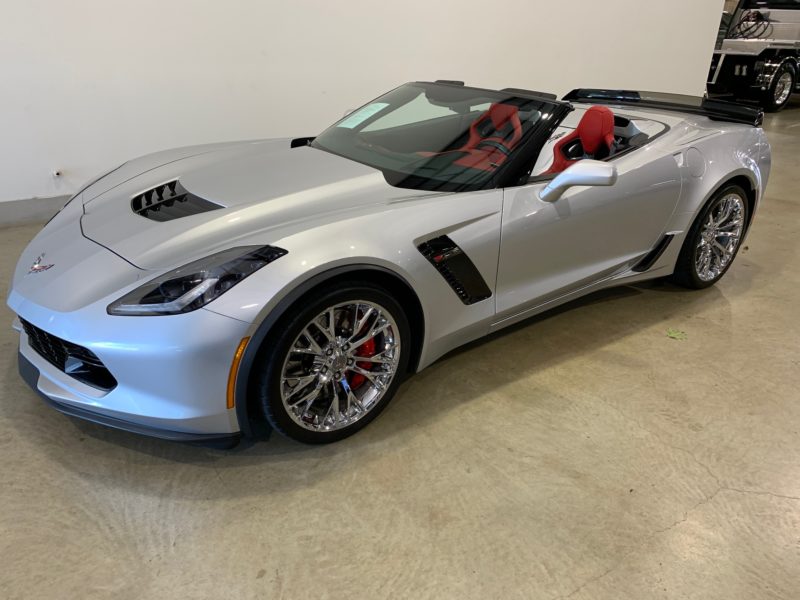When it comes to buying a used car, it can be difficult to know what you’re getting. Even if a car looks good on the surface, there could be hidden issues lurking beneath that could end up costing you a lot of money down the road.
That’s why it’s so important to have a pre-purchase inspection done before you buy a used car. A pre-purchase inspection is a thorough examination of the car that can reveal any potential problems that you may not have noticed during a test drive or a casual walkaround. In this article, we’ll go over what a pre-purchase inspection is, what to look for, and how to avoid buying a lemon.

What is a Pre-Purchase Inspection?
A pre-purchase inspection is a comprehensive examination of a used car, performed by a qualified mechanic. The mechanic will check all the major systems of the car, including the engine, transmission, brakes, suspension, electrical system, and more. They will also check for any signs of accident damage, rust, or other cosmetic issues. A pre-purchase inspection typically takes about two hours and costs around $100 to $200.
What to Look for in a Pre-Purchase Inspection
When you’re buying a used car, it’s important to know what to look for in a pre-purchase inspection. Here are some key things to look for:
- Engine: The inspector should check the oil level and condition, as well as the condition of the belts, hoses, and other components. They should also check for any leaks, unusual noises, or other signs of wear and tear.
- Transmission: The inspector should check for any slipping, grinding, or other issues with the transmission. They should also check the fluid level and condition.
- Brakes: The inspector should check the condition of the brake pads, rotors, and calipers. They should also check for any signs of leaks or other issues with the brake system.
- Suspension: The inspector should check the condition of the shocks, struts, and other suspension components. They should also check for any signs of wear or damage to the steering and alignment.
- Electrical System: The inspector should check the condition of the battery, alternator, starter, and other electrical components. They should also check all the lights, gauges, and other electrical systems to make sure they are working properly.
- Cosmetic Issues: The inspector should check for any signs of rust, dents, scratches, or other cosmetic issues. They should also check the condition of the tires, wheels, and other parts of the car.
How to Avoid Buying a Lemon
A “lemon” is a term used to describe a used car that has a lot of problems and is not worth the price. Here are some tips on how to avoid buying a lemon:
- Get a pre-purchase inspection: As mentioned earlier, this is the most important step in buying a used car. A pre-purchase inspection can reveal any hidden issues that you may not have noticed.
- Check the car’s history: Make sure to get a vehicle history report, which will give you information on the car’s past ownership, accidents, and other issues.
- Test drive the car: Take the car for a test drive and pay attention to any unusual noises or vibrations.
- Check for rust: Rust can be a major problem, especially on older cars. Look for rust on the body, undercarriage, and other parts of the car.
Be wary of cars that are priced too low: If a car seems too good to be true, it probably is. Be wary of cars that are priced significantly lower than similar cars on the market. This could be a sign of major problems or hidden damage.
- Trust your instincts: If something about the car or the seller feels off, trust your instincts and walk away.
- Use a reputable dealership or seller: Buying from a reputable dealership or seller can help to reduce the risk of buying a lemon. They are more likely to have thoroughly inspected the car and to be honest about any issues it may have.
- Consider an extended warranty: An extended warranty can give you peace of mind and protection against unexpected repairs.
Get a Better Deal On Your New Used Car
A pre-purchase inspection is a crucial step in buying a used car. It can reveal hidden issues that you may not have noticed and help you to make an informed decision about whether or not to buy the car. By following the tips outlined in this article, you can avoid buying a lemon and find a car that is reliable and worth the price. Remember to use a reputable vehicle pre-buy inspection service in Dallas Fort Worth, trust your instincts, and be prepared to walk away if something seems off.
